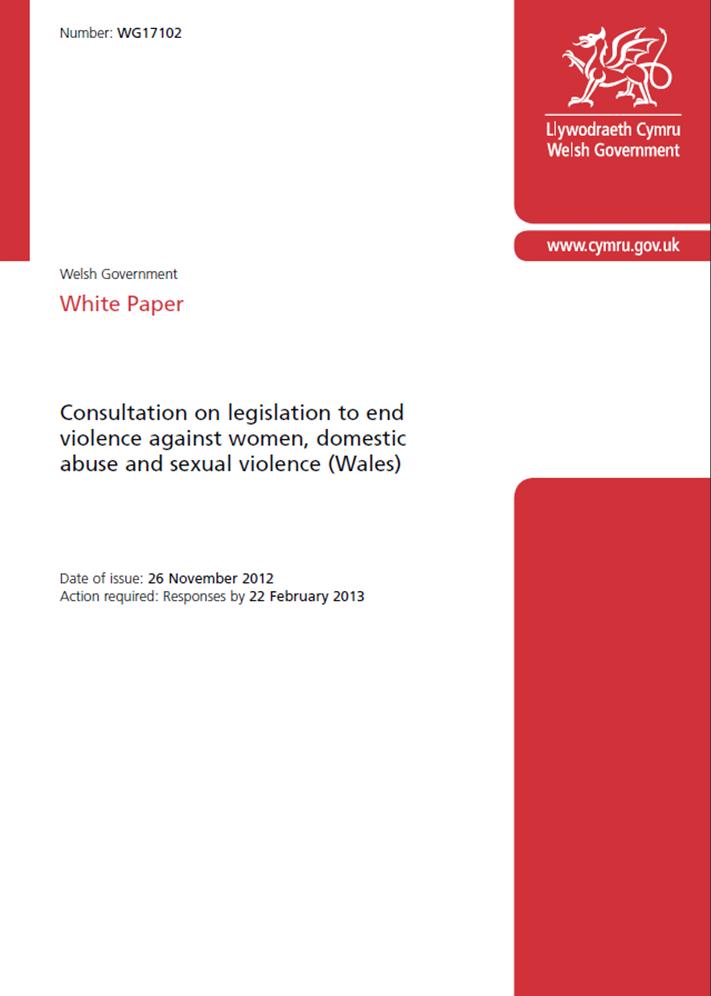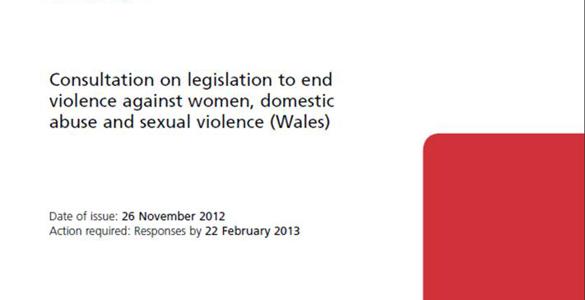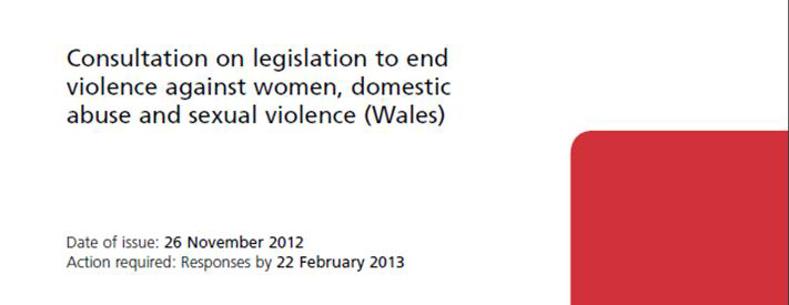Article by Hannah Johnson, National Assembly for Wales Research Service
In June 2014, the Welsh Government will introduce legislation to tackle violence against women and domestic abuse to underpin the Right to be Safe strategy, which was published in 2010.
Prevalence of violence against women
- Up to three million women across the UK experience rape, domestic violence, forced marriage, stalking, sexual exploitation and trafficking, female genital mutilation (FGM) or so-called ‘honour’-based violence each year.
- Seven per cent of women and five per cent of men were estimated to have experienced domestic abuse in the last year, equivalent to an estimated 1.2 million female and 800,000 male victims.
- 404,000 women are victims of sexual offences in England and Wales every year (2.5% of women).
- 85,000 women are victims of rape in England and Wales every year, which is roughly 2,000 a week.
- Around one in twenty females (aged 16 to 59) reported being a victim of a serious sexual offence since the age of 16.
Right to be Safe strategy While the criminal justice elements relating to violence against women and domestic abuse are not devolved, the Welsh Government has responsibility for social welfare, local government, health, housing, education and children’s issues, as well as co-ordinating multi-agency working. The Welsh Government’s Right to be Safe 6 year strategy for all forms of violence against women and domestic abuse was introduced in 2010. The strategy significantly extended the scope of the 2005 domestic abuse strategy, and addresses four key areas:
- prevention and raising awareness of violence against women and domestic abuse;
- providing support for victims and children;
- improving the responses of criminal justice agencies; improving the response of health services and other agencies.
Legislation  On 26 November 2012, a White Paper consultation on an Ending Violence Against Women, Domestic Abuse and Sexual Violence Bill was published, which outlined the policy and legislative proposals. The proposals focused on three specific areas:
On 26 November 2012, a White Paper consultation on an Ending Violence Against Women, Domestic Abuse and Sexual Violence Bill was published, which outlined the policy and legislative proposals. The proposals focused on three specific areas:
- stronger leadership across public sector services in Wales that is independent, provides a strategic overview and can monitor and challenge;
- better education and awareness from the ‘cradle to the grave’, which includes the public, frontline staff and professionals, and
- strengthening and integrating services that are consistent, effective and of a quality standard.
Specifically, the White Paper proposes to: - appoint an ‘Independent Ministerial Adviser for Ending Violence Against Women’ who will have:
- the power to require information and conduct investigations against agreed quality standards;
- the ability to contribute to decisions taken on the use or allocation of funding/resources by providing information to Welsh Ministers (i.e providing performance information to inform future funding decisions);
- require public services to collaborate on a local and regional level to develop and implement strategies to reduce violence against women, domestic abuse and sexual violence based on needs assessment analysis; - commission an independent review of services for victims; - ensure that education on ‘healthy relationships’ is delivered in all schools, and to place a duty on local authorities to identify a regional champion to promote the issue educational settings; - introduce a National Training Framework to which key public and specialist service providers will pay due regard; - place various duties on devolved public sector bodies to:
- contribute to multi-agency fora that are convened to share information and promote the safety of individuals at risk of violence against women, domestic abuse or sexual violence;
- ‘ask and act’ in relation to violence against women, domestic abuse and sexual violence, particularly in housing;
- provide safe accommodation;
- have workplace domestic abuse policies for their employees.
The consultation ended on 22 February 2013, and a summary of the 147 responses was published in September 2013. The Bill is expected to be introduced in June 2014.






